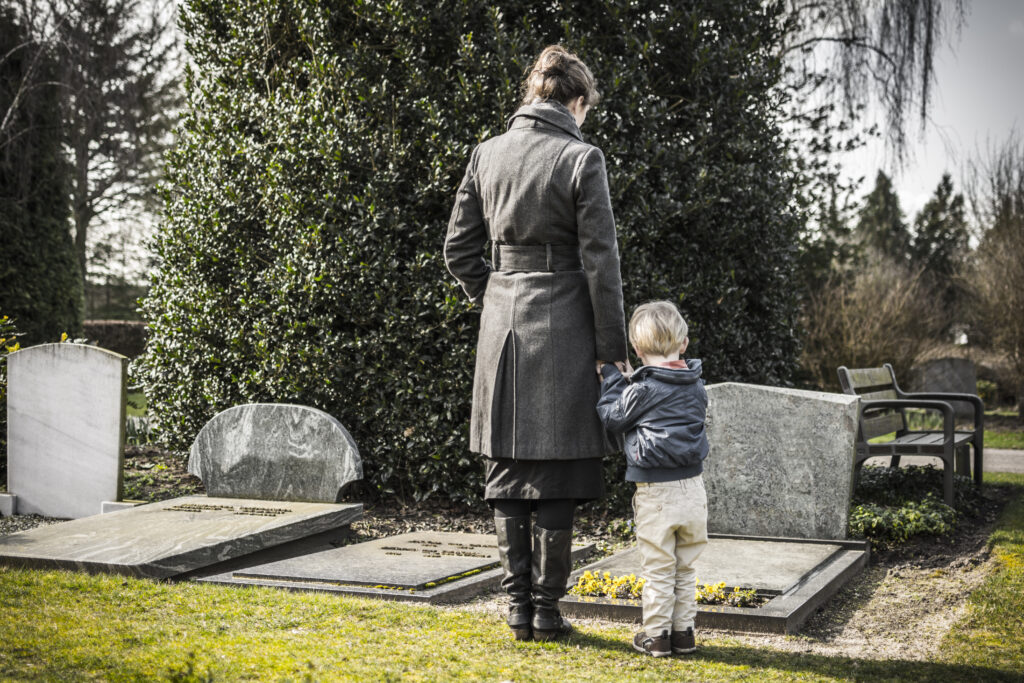A wrongful death occurs when a person dies due to the negligence, misconduct, or wrongful act of another individual, company, or entity. This legal concept allows surviving family members or beneficiaries to seek compensation for their losses, which can include financial support, companionship, and emotional suffering resulting from untimely death.
If you recently lost a loved one due to another person or entity’s wrongful act, you have legal options available. A skilled Lincoln wrongful death attorney in your area can determine the appropriate course of action for your case and pursue the compensation and justice that you and your family need at this difficult time.
Potential Causes of Wrongful Death
Wrongful death claims arise from a variety of unfortunate circumstances where the negligence or misconduct of another party results in someone’s death. These claims are a crucial aspect of seeking justice and compensation for the surviving family members left behind.

Here are some of the most common types of occurrences that may lead to a wrongful death claim:
- Traffic Accidents – Traffic collisions, including car crashes, truck collisions, pedestrian accidents, and bicycle accidents, are a leading cause of wrongful death claims. When a driver’s negligence, such as speeding, reckless driving, or driving under the influence of alcohol or drugs, causes a fatal accident, the surviving family members may file a wrongful death claim against the responsible party.
- Criminal Acts – Intentional acts of violence, such as assault, homicide, or manslaughter, can also result in wrongful death claims. Even if the responsible party faces criminal charges, the victim’s family may pursue a separate civil wrongful death claim for damages.
- Dangerous Premises – Property owners must maintain safe premises for visitors. Fatalities resulting from hazards like slippery floors, inadequate security leading to assaults, or building code violations may give rise to wrongful death claims.
- Aviation Accidents – When a plane crash or other aviation incident results in fatalities, wrongful death claims may be filed against the airline, aircraft manufacturer, or other parties responsible for the accident.
- Recreational Accidents – Fatalities occurring during recreational activities such as boating accidents, amusement park incidents, or sporting events due to negligence or inadequate safety measures may lead to wrongful death claims.
- Police Misconduct – Deaths resulting from police misconduct, including excessive force, negligence during arrest or custody, or failure to provide necessary medical care, can lead to wrongful death claims.
In each of these scenarios, proving liability and demonstrating the effects of the death on surviving family members are essential aspects of pursuing a wrongful death claim.
Such claims typically seek compensation for medical expenses, funeral costs, lost income, and emotional suffering that surviving family members experienced due to the untimely loss of their loved one.
Who is Eligible to File a Wrongful Death Claim or Lawsuit?
In the legal realm, eligibility to file a wrongful death claim or lawsuit depends on criteria that vary depending on the jurisdiction.
Generally, the following parties can file such claims:
- Immediate Family Members – Spouses, children, and parents of the deceased are usually the primary individuals who are eligible to file a wrongful death claim. These family members are considered to have suffered the most direct loss from the death and are, therefore, entitled to seek compensation for their emotional and financial damages.
- Domestic Partners and Dependents – In some jurisdictions, domestic partners, life partners, and individuals who were financially dependent on the deceased may also be eligible to file a wrongful death claim. This recognizes that non-married partners or dependents may have relied on the deceased for support and suffered significant losses due to their death.
- Distant Family Members – In certain cases, siblings, grandparents, or other extended family members who can demonstrate that they were financially dependent on the deceased may be eligible to file a wrongful death claim. However, eligibility for distant family members varies widely by jurisdiction and specific circumstances.
- Legal Representatives – If the deceased had a will or estate plan in place, the estate's designated executor or personal representative may file a wrongful death claim on behalf of the estate and any beneficiaries named in the will.
- Financial Dependents – Individuals who can prove that they were financially dependent on the deceased, even if not related by blood or marriage, may be eligible to file a wrongful death claim. This can include stepchildren, foster children, or individuals who relied on the deceased for financial support.
Eligibility criteria can differ significantly between states. Some jurisdictions have specific laws outlining who can file a wrongful death claim and under what circumstances.

Additionally, the statute of limitations for filing a wrongful death claim varies, often ranging from one to three years from the date of death, so eligible parties must act promptly.
Ultimately, eligibility to file a wrongful death claim is based on the legal principle that those who have suffered a direct loss due to someone else’s negligence or misconduct should have the right to seek compensation.
An experienced wrongful death attorney in your jurisdiction can clarify eligibility and help you navigate the claims filing process.
Legal Elements of a Wrongful Death Case
A wrongful death claim typically involves proving several legal elements to establish liability and seek compensation for the loss of a loved one. Here are the key elements and types of evidence that can be crucial in these cases:
Legal Elements of a Wrongful Death Claim:
- Duty of Care – The plaintiff (the party filing the wrongful death claim) must first show that the defendant (the party accused of causing the death) owed a duty of care to the deceased. For example, in a car accident case, all drivers must drive safely.
- Breach of Duty – The plaintiff must also demonstrate that the defendant breached their duty of care through negligent or intentional actions.
- Causation – The plaintiff must prove that the defendant’s breach of duty was a direct cause of the death. This often requires establishing a clear link between the defendant’s actions or negligence and the fatal outcome.
- Damages – Finally, the plaintiff must quantify the damages suffered due to the death. This includes economic damages such as medical expenses and lost income, as well as non-economic damages like pain and suffering and loss of companionship.
Common Evidence in Wrongful Death Claims:
- Medical Records – These can include hospital records, autopsy reports, and medical expert testimony to establish the cause of death and link it to the defendant’s actions.
- Eyewitness Testimony – Statements from individuals who witnessed the incident or were present at the time of death can provide crucial firsthand accounts of what occurred.
- Expert Witness Testimony – Experts in various fields, such as accident reconstruction, medical specialties, or vocational rehabilitation, can provide professional opinions on liability and damages.
- Financial Records – Documentation of the deceased’s income, benefits, and financial contributions to their family can help quantify economic damages.
- Photographs and Videos – Visual evidence such as accident scene photos or surveillance footage can illustrate conditions at the time of the incident and support the plaintiff’s claims.
- Employment Records – These records can demonstrate the deceased’s occupation, salary, and future earning potential, which help calculate lost income and financial support.
- Witness Statements – Testimony from friends, family members, coworkers, or others who knew the deceased can provide insights into the effect of the loss on surviving family members.
- Past Statements of the Deceased – Written or recorded statements from the deceased regarding safety concerns, health issues, or their state of mind before the incident may be relevant.
Successfully proving a wrongful death claim requires gathering and presenting compelling evidence that satisfies these legal elements. Working with an experienced wrongful death attorney can be crucial in navigating the process – and ensuring that justice is served for the surviving family members who have suffered a devastating loss.
How Can a Lawyer Help with a Wrongful Death Claim?
An experienced wrongful death attorney can be instrumental in navigating the complexities of legal proceedings and advocating for families who have lost loved ones due to negligence or misconduct.
Here’s how an attorney can help with your case:
- Legal Knowledge and Guidance – Wrongful death laws vary by state and can be intricate. A knowledgeable attorney understands these laws and can explain your rights and options clearly. They can provide guidance on the legal process, ensuring that you understand each step and can make informed decisions.
- Investigation and Gathering Evidence – Attorneys have the necessary resources to thoroughly investigate a death. They can gather medical records, accident reports, witness statements, and expert opinions. This evidence is essential in establishing liability and proving the cause of death.
- Building a Strong Case – With their experience, attorneys know how to build a compelling case. They formulate legal strategies tailored to the specifics of your situation, anticipating challenges and effectively presenting arguments to support your compensation claim.
- Negotiating with Insurance Companies – Often, wrongful death claims involve negotiations with insurance companies representing the at-fault party. Attorneys are skilled negotiators who can advocate for fair settlements on your behalf. They know how to counter insurance tactics and ensure that you receive the compensation you deserve.
- Trial Representation – If a fair settlement cannot be reached through negotiation, attorneys are prepared to take your case to trial. They have courtroom experience and are adept at presenting evidence, cross-examining witnesses, and arguing your case before a judge and jury.
- Calculating Damages – Wrongful death damages can include medical expenses, funeral costs, lost income, and loss of companionship. Attorneys understand how to calculate these damages accurately, considering future financial losses and non-economic damages like emotional suffering.
Ultimately, retaining an experienced wrongful death attorney not only enhances your chances of obtaining a favorable outcome but also provides peace of mind during a difficult time.
Lawyers serve as dedicated advocates, committed to securing justice and financial compensation for the losses you’ve suffered due to the wrongful death of a family member.
Recoverable Compensation in a Wrongful Death Case
Determining the monetary value of a wrongful death claim can be complex and depends on various factors specific to each case.
Several key considerations influence the amount of compensation awarded, including:
- The Extent of Economic Losses – These are tangible financial losses incurred as a result of the death. They typically include medical expenses related to the deceased’s final injury or illness, funeral and burial costs, and any lost income or benefits the deceased would have earned if they had survived. Calculating economic losses requires documentation such as medical bills, pay stubs, and receipts.
- Non-Economic Losses – These are intangible losses that are more challenging to quantify but are no less significant. They encompass the emotional pain and suffering that surviving family members experienced due to the loss of their loved one. Non-economic damages also include loss of companionship, guidance, and consortium. These damages aim to compensate for the emotional effects and diminished quality of life resulting from the death.
- Punitive Damages – In cases where the defendant’s actions were particularly egregious or reckless, punitive damages may be awarded. Unlike economic and non-economic damages, punitive damages are meant to punish the defendant and deter similar misconduct in the future rather than compensate the plaintiffs directly.

The specific amount of compensation awarded in a wrongful death claim varies widely depending on factors such as the deceased’s age, earning potential, life expectancy, incident circumstances, and jurisdictional laws. Courts or juries consider these factors to determine a fair and just compensation amount.
It’s essential to consult with an experienced wrongful death attorney who can assess your case’s unique aspects and help you understand the potential value of your claim. They will work to gather evidence, calculate damages accurately, and negotiate or litigate on your behalf to secure the compensation you deserve.
Speak with a Knowledgeable Wrongful Death Lawyer in Your Area Today
If you recently lost a loved one due to someone else’s wrongful act, a skilled wrongful death attorney in your jurisdiction can help. Your Lincoln personal injury lawyer can swiftly investigate the circumstances, determine your claim-filing eligibility, and work to pursue the compensation that you and your loved ones deserve.